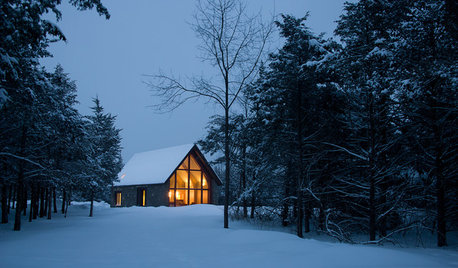Tankless Coil on a Heating Boiler Leaking
pepperidge_farm
15 years ago
Related Stories

GREAT HOME PROJECTSHow to Switch to a Tankless Water Heater
New project for a new year: Swap your conventional heater for an energy-saving model — and don’t be fooled by misinformation
Full Story
FLOORSIs Radiant Heating or Cooling Right for You?
Questions to ask before you go for one of these temperature systems in your floors or walls (yes, walls)
Full Story
FLOORSFloors Warm Up to Radiant Heat
Toasty toes and money saved are just two benefits of radiant heat under your concrete, wood or tile floors
Full Story
FLOORSWhat to Ask When Considering Heated Floors
These questions can help you decide if radiant floor heating is right for you — and what your options are
Full Story
FIREPLACESUpdated Woodstoves Keep Home Fires Burning
Better technology means more efficiency than ever for modern woodstoves
Full Story
WINDOW TREATMENTSEasy Green: 9 Low-Cost Ways to Insulate Windows and Doors
Block drafts to boost both warmth and energy savings with these inexpensive but effective insulating strategies
Full Story
FIREPLACESRumford Fireplaces Are Hotter Than Ever
Higher efficiency and good looks are leading homeowners back to this 18th-century fireplace design
Full Story
ARCHITECTURE15 Smart Design Choices for Cold Climates
Keep your home safe and comfortable in winter by choosing the right home features and systems
Full Story
GREEN BUILDINGZero Net Energy: A Hardworking-House Term to Know
Homes that consume only as much energy as they produce by renewable means are a goal for builders. Learn what ZNE means for you
Full Story
GREEN BUILDINGHouzz Tour: See a Concrete House With a $0 Energy Bill
Passive House principles and universal design elements result in a home that’ll work efficiently for the long haul
Full StorySponsored
Most Skilled Home Improvement Specialists in Franklin County
More Discussions







baymee
markjames
Related Professionals
Cheshire Solar Energy Systems · Downey Solar Energy Systems · Dracut Solar Energy Systems · Sanger Solar Energy Systems · Bedford Home Automation & Home Media · Fort Lauderdale Home Automation & Home Media · Grand Rapids Home Automation & Home Media · Kansas City Home Automation & Home Media · Lenexa Home Automation & Home Media · Winnetka Home Automation & Home Media · East Cleveland Home Automation & Home Media · Orlando Electricians · Lexington Electricians · Elk Grove Village Fireplaces · Fort Salonga Fireplaceszl700
pepperidge_farmOriginal Author
baymee
markjames
pepperidge_farmOriginal Author
tedsan
baymee
tedsan
baymee
pepperidge_farmOriginal Author
baymee
markjames
baymee
pepperidge_farmOriginal Author
netmouse